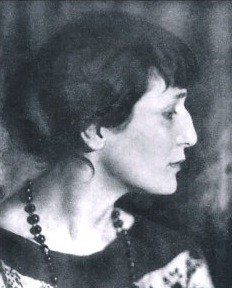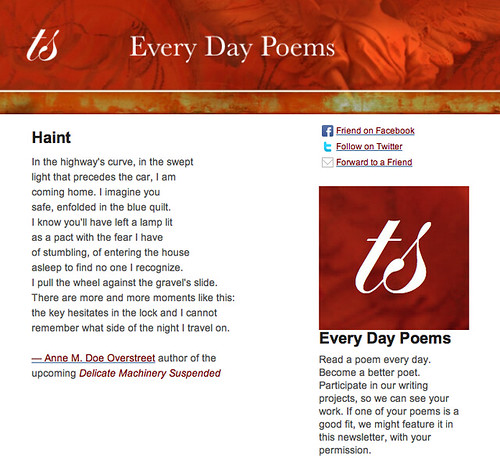My original title for this post: “A.A.’s Birthday.” I was shooting for catchy and mysterious, but another A.A. has bested Anna in terms of instant recognition. Still, this day is to be remembered if only because Akhmatova herself should not be forgotten.
Born Anna Andreevna Gorenko in 1889 (she later took her grandmother’s name, Akhmatova), the poet survived some of the most brutal years of Russian history, but not without massive loss. Her first husband was shot for conspiring against the state. Another died in the Gulag on similar charges. Her son was repeatedly arrested, released, rearrested and ultimately freed due to Akhmatova’s perseverance (this period was the only time she wrote propagandist poetry for the state). The philosopher Isaiah Berlin wrote of Akhmatova:
“The widespread worship of her memory in Soviet Union today, both as an artist and as an unsurrendering human being, has, so far as I know, no parallel. The legend of her life and unyielding passive resistance to what she regarded as unworthy of her country and herself, transformed her into a figure […] not merely in Russian literature, but in Russian history in [the Twentieth] century.”
Akhmatova’s work was revolutionary in its time, “composed of short fragments of simple speech that do not form a logical coherent pattern. Instead, they reflect the way we actually think, the links between the images are emotional, and simple everyday objects are charged with psychological associations. Like Alexander Pushkin, who was her model in many ways, Akhmatova was intent on conveying worlds of meaning through precise details” (Roberta Reeder).
The following poem was written in March of 1944 and is part of a larger sequence entitled “Death.” It exemplifies Akhmatova’s attention to detail and scene-setting, and like the best of literature, is universal, by nature of its specificity.
When the moon lies like a slice of Chardush melon
On the windowsill and it’s hard to breathe,
When the door is shut and the house bewitched
By an airy branch of blue wisteria,
And there is cool water in the clay cup,
And a snow-white towel, and the wax candle
Is burning, as in my childhood, attracting moths,
The silence roars, not hearing my words–
Then from corners black as Rembrandt’s
Something rears and hides itself again,
But I won’t rouse myself, won’t even take fright…
Here loneliness has caught me in its net.
The landlady’s black cat stares like the eye of centuries,
And the double in the mirror doesn’t want to help me.
I will sleep sweetly. Good night, night.
—translated by Judith Hemschemeyer
Post by Jennifer Jantz Estes. Reprinted with permission from Eighth Day Books.
The Complete Poems of Anna Akhmatova
___________
Buy a year of Every Day Poems— Read a poem a day, become a better poet. In December we’re exploring the theme The Villanelle
- Poetry Prompt: In the Wild Secret Place - January 6, 2025
- Journeys: What We Hold in Common - November 4, 2024
- Poetry Prompt: My Poem is an Oasis - August 26, 2024


L. L. Barkat says
Ever since I first read this, Jennifer, I’ve been fascinated by Anna. I even have a few poems about her, since I somehow relate to her image-driven sensibilities.